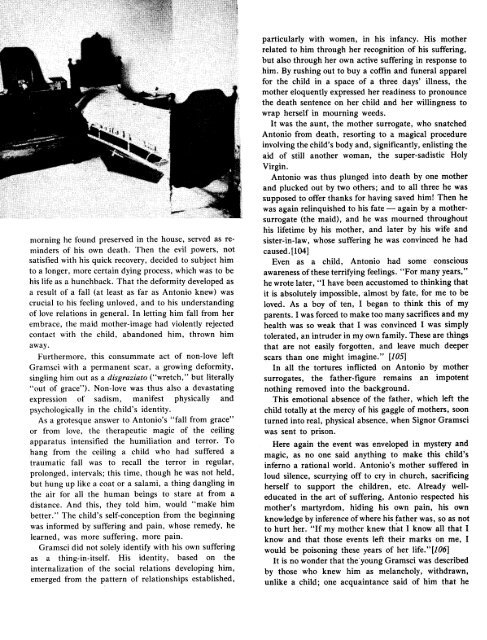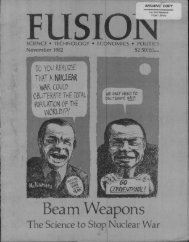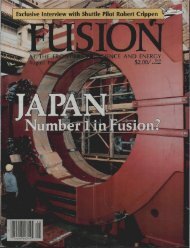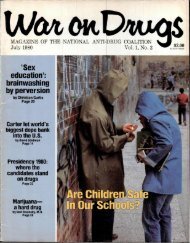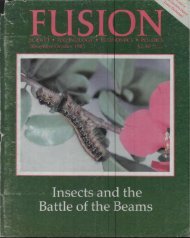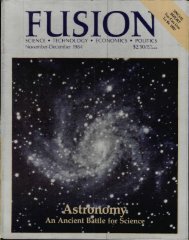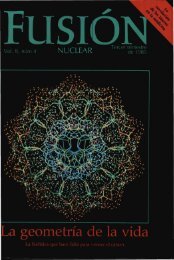The Campaigner
The Campaigner
The Campaigner
Create successful ePaper yourself
Turn your PDF publications into a flip-book with our unique Google optimized e-Paper software.
particularly with women, in his infancy. His mother<br />
related to him through her recognition of his suffering,<br />
but also through her own active suffering in response to<br />
him. By rushing out to buy a coffin and funeral apparel<br />
for the child in a space of a three days' illness, the<br />
mother eloquently expressed her readiness to pronounce<br />
the death sentence on her child and her willingness to<br />
wrap herself in mourning weeds.<br />
It was the aunt, the mother surrogate, who snatched<br />
Antonio from death, resorting to a magical procedure<br />
involving the child's body and, significantly, enlisting the<br />
aid of still another woman, the super-sadistic Holy<br />
Virgin.<br />
Antonio was thus plunged into death by one mother<br />
and plucked out by two others; and to all three he was<br />
supposed to offer thanks for having saved him! <strong>The</strong>n he<br />
was again relinquished to his fate -- again by a mothersurrogate<br />
(the maid), and he was mourned throughout<br />
his lifetime by his mother, and later by his wife and<br />
morning he found preserved in the house, served as re- sister-in-law, whose suffering he was convinced he had<br />
minders of his own death. <strong>The</strong>n the evil powers, not caused.[104]<br />
satisfied with his quick recovery, decided to subject him Even as a child, Antonio had some conscious<br />
to a longer, more certain dying process, which was to be awareness of these terrifying feelings. "For many years,"<br />
his life as a hunchback. That the deformity developed as he wrote later, "I have been accustomed to thinking that<br />
a result of a fall (at least as far as Antonio knew) was it is absolutely impossible, almost by fate, for me to be<br />
crucial to his feeling unloved, and to his understanding loved. As a boy of ten, I began to think this of my<br />
of love relations in general. In letting him fall from her parents. I was forced to make too many sacrifices and my<br />
embrace, the maid mother-image had violently rejected health was so weak that I was convinced I was simply<br />
contact with the child, abandoned him, thrown him tolerated, an intruder in my own family. <strong>The</strong>se are things<br />
away. that are not easily forgotten, and leave much deeper<br />
Furthermore, this consummate act of non-love left scars than one might imagine." [105]<br />
Gramsci with a permanent scar, a growing deformity, In all the tortures inflicted on Antonio by mother<br />
singling him out as a disgraziato ("wretch," but literally surrogates, the father-figure remains an impotent<br />
"out of grace"). Non-love was thus also a devastating nothing removed into the background.<br />
expression of sadism, manifest physically and This emotional absence of the father, which left the<br />
psychologically in the child's identity, child totally at the mercy of his gaggle of mothers, soon<br />
As a grotesque answer to Antonio's "fall from grace" turned into real, physical absence, when Signor Gramsci<br />
or from love, the therapeutic magic of the ceiling was sent to prison.<br />
apparatus intensified the humiliation and terror. To Here again the event was enveloped in mystery and<br />
hang from the ceiling a child who had suffered a magic, as no one said anything to make this child's<br />
traumatic tall was to recall the terror in regular, inferno a rational world. Antonio's mother suffered in<br />
prolonged, intervals; this time, though he was not held, loud silence, scurrying off to cry in church, sacrificing<br />
but hung up like a coat or a salami, a thing dangling in herself to support the children, etc. Already wellthe<br />
air for all the human beings to stare at from a educated in the art of suffering, Antonio respected his<br />
distance. And this, they told him, would "mat_e him mother's martyrdom, hiding his own pain, his own<br />
better." <strong>The</strong> child's self-conception from the beginning knowledge by inference of where his father was, so as not<br />
was informed by suffering and pain, whose remedy, he to hurt her. "If my mother knew that I know all that I<br />
learned, was more suffering, more pain. know and that those events left their marks on me, I<br />
Gramsci did not solely identify with his own suffering would be poisoning these years of her life."[106]<br />
as a thing-in-itself. His identity, based on the It is no wonder that theyoung Gramsci was described<br />
internalization of the social relations developing him, by those who knew him as melancholy, withdrawn,<br />
emerged from the pattern of relationships established, unlike a child; one acquaintance said of him that he


